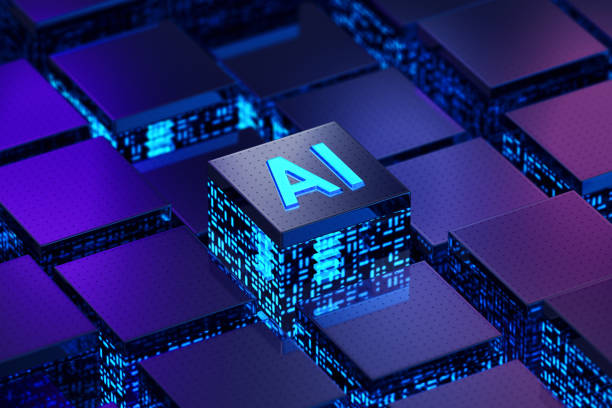Last Updated on May 18, 2023

The role of artificial intelligence in recent technology has been transformative. The rise of artificial intelligence has sparked different opinions in people; some feel this technology is revolutionary and should be fully accepted into society, while others feel the transformational attribute of this technology is worrisome and we should probably tread carefully.
Whatever the opinion, AI is here already, and it is a technological evolution that has been observed to replicate and accelerate rote tasks through automation. So you would understand the question of what the role of AI is in the workplace—a valid question that should be navigated carefully and truthfully.
Artificial intelligence (AI) has become increasingly prevalent in the modern workplace, and it is clear that it will continue to play a significant role in the future of work. While some may fear the potential negative impacts of AI, it has the potential to revolutionize industries and bring about numerous benefits for both businesses and workers.
What Is Artificial Intelligence?
Artificial intelligence (AI) refers to the ability of machines or computer systems to perform tasks that would typically require human-like intelligence, such as recognizing patterns, learning from data, and making decisions. AI systems can be trained to perform a wide variety of tasks, ranging from simple ones such as sorting data to more complex ones such as language translation or image recognition.
There are several types of AI, including narrow or weak AI, which is designed to perform specific tasks, and general or strong AI, which is designed to perform any intellectual task that a human can.
AI systems can be trained using various methods, including supervised learning, in which the AI system is provided with labeled data and learns to perform a task by identifying patterns in the data, and unsupervised learning, in which the AI system is provided with unlabeled data and learns to identify patterns on its own. It is a craze, I know.
The truth is artificial intelligence has the potential to revolutionize many industries and has already been implemented in a wide range of applications, including healthcare, finance, transportation, and manufacturing. However, the development and use of it also raise ethical and social concerns, such as the potential loss of jobs to automation and the need to ensure that AI systems do not perpetuate biases or discrimination.
Benefits of AI in the workplace
If artificial intelligence has everyone talking like this, you can’t deny, it is at least fair, to hear what it brings to the table for there to be so much rumble about it. Here are the benefits of AI
1. Increased productivity and efficiency
One of the key benefits of AI in the workplace is its potential to increase productivity and efficiency. AI systems can perform tasks faster and more accurately than humans, which frees up time and resources for more complex or value-added tasks. AI can also help automate repetitive or time-consuming tasks, such as data entry or scheduling, which can reduce the workload for employees and improve their productivity.
In addition, AI can also help to improve decision-making by providing real-time data analysis and insights, which can help organizations make more informed and effective decisions. AI can also improve customer service by providing personalized and efficient service through chatbots or virtual assistants.
Overall, the ability of AI to perform tasks faster and more accurately and to automate repetitive tasks can help increase productivity and efficiency in the workplace.
2. Improved accuracy and consistency
Improved accuracy and consistency are other benefits of AI in the workplace. AI systems can perform tasks with a high degree of accuracy, as they are not subject to human error or biases. This can be particularly useful for tasks that require high levels of precision, such as data analysis or quality control.
AI can also help to improve consistency in the workplace by providing a standardized approach to tasks such as customer service or data entry. This can help to ensure that tasks are performed consistently and uniformly, which can improve the quality of work and customer satisfaction.
The ability of AI to perform tasks with high levels of accuracy and consistency can help improve the quality of work in the workplace and enhance customer satisfaction.
3. Enhanced decision-making capabilities
Enhanced decision-making capabilities are another benefit of AI in the workplace. AI systems are able to analyze large amounts of data quickly and accurately, which can help organizations make more informed and effective decisions. AI can also help identify patterns and trends in data that may not be immediately apparent to humans, which can provide valuable insights and inform decision-making.
In addition, AI can also be used to automate decision-making processes, such as by providing real-time recommendations or automatically routing customer inquiries to the appropriate department. This can help improve the efficiency and effectiveness of decision-making in the workplace.
Overall, the ability of AI to analyze data quickly and accurately and to automate decision-making processes can enhance decision-making capabilities in the workplace and help organizations make more informed and effective decisions.
Examples Of AI Used In Workplaces
There are different types of artificial intelligence being used in workplaces around the world, here are some examples of them:
1. Automation of repetitive tasks
Automation of repetitive tasks is one example of how AI is being used in the workplace. AI systems can be trained to perform tasks that are repetitive or time-consuming, such as data entry or scheduling. This can help to free up time and resources for more complex or value-added tasks and can also improve the efficiency and accuracy of these tasks, as AI systems are not subject to human error or fatigue.
Automation of repetitive tasks can also help to reduce the workload for employees and improve their productivity. It can also help to improve customer service by providing personalized and efficient service through chatbots or virtual assistants.
In the workplace, AI enhances efficiency, productivity, and customer service by automating repetitive tasks.
2. Data analysis and insights
AI usage in the workplace includes data analysis and insights. AI systems rapidly and accurately analyze large datasets, informing decision-making and providing valuable insights by identifying patterns and trends not immediately apparent to humans.
Data analysis and insights can be used in a wide range of applications, including marketing, finance, and supply chain management. For example, AI can be used to analyze customer data to identify trends and preferences, which can inform marketing strategies. In finance, AI can be used to analyze market data to identify investment opportunities or detect fraudulent activity. In supply chain management, AI can be used to optimize logistics and improve efficiency.
Basically, in the workplace, AI is utilized to enhance decision-making and acquire valuable insights through data analysis.
3. Customer service and communication
Artificial intelligence has been increasingly integrated into customer service and communication in the workplace. Some examples of how artificial intelligence is used in customer service and communication include:
A. Chatbots
Computer programs utilizing natural language processing (NLP) enable communication with customers through text or voice messages. Chatbots handle diverse inquiries, from product questions to appointment scheduling and support provision.
B. Natural language generation (NLG)
This technology uses artificial intelligence algorithms to generate written or spoken responses in a way that resembles human communication. NLG can be used to create personalized responses to customer inquiries or to generate reports and other written materials.
C. Voice recognition
Voice recognition software powered by artificial intelligence transcribes spoken words into text, aiding customer service agents in note-taking and responding to inquiries.
D. Sentiment analysis
Artificial intelligence algorithms analyze customer communications, such as social media posts or review comments, to determine sentiment or emotion. This assists companies in understanding customer perceptions, identifying issues, and taking necessary actions.
Integrating artificial intelligence into customer service and communication enhances efficiency, reduces costs, and improves the customer experience. It enables handling a larger volume of interactions and inquiries, especially during high-demand periods.
4. Predictive maintenance in manufacturing
Predictive maintenance employs artificial intelligence to forecast equipment failures, enabling scheduled maintenance and preventing unplanned downtime. It involves continuous monitoring, data analysis using machine learning algorithms, and proactive issue resolution. This approach reduces costs, enhances efficiency, and boosts manufacturing process productivity.
Ethical Considerations of Artificial Intelligence in the Workplace
Can we really speak about AI’s role in the workplace and not talk about some ethical considerations? Yeah, not really.
1. Bias in algorithms
Bias in algorithms can be an ethical consideration in the use of AI in the workplace for several reasons.
Algorithms make impactful decisions on hiring, promotions, and job assignments, potentially resulting in discrimination against specific groups. Biased algorithms unfairly disadvantage individuals based on race or gender, leading to exclusion from opportunities.
Algorithms predict human behavior, such as employee turnover or job applicant success. Biased algorithms can yield inaccurate predictions, resulting in unfair treatment or expectations for specific groups.
Algorithms can perpetuate and amplify societal biases, contributing to inequalities if trained on biased data. This can reinforce and exacerbate existing disparities, leading to significant consequences for society as a whole.
Organizations must acknowledge the potential for algorithmic bias and take actions to mitigate it. This includes training algorithms with diverse and representative data, regularly evaluating for bias, and implementing fairness measures for unbiased decision-making.
2. Job displacement and the need for retraining
The utilization of AI in the workplace can result in job displacement, causing the loss of jobs due to technology or automation. This raises ethical concerns as it profoundly affects individuals, leading to financial instability and challenges in securing new employment.
Job displacement has not only individual repercussions but also broader societal implications, including heightened income inequality and economic disruption.
To tackle ethical concerns, companies and governments must consider AI’s employment impacts and offer retraining and support to displaced workers. This involves investing in education and training programs to facilitate skill acquisition and industry transitions for individuals.
The ethical consideration of job displacement and retraining in AI underscores the necessity of equitable sharing of technological progress benefits and supporting individuals in job market adaptations.
3. Transparency and accountability in AI decision-making
Ethical considerations in AI decision-making prioritize transparency and accountability to guarantee fairness, impartiality, and justifiability. When AI systems impact lives or employment, it is crucial to understand the decision-making process and address concerns promptly.
In AI decision-making, transparency entails comprehending how the system operates, including input data and algorithms used. This enables people to grasp the decision-making basis and identify potential biases or system issues.
AI decision-making requires accountability to address concerns or issues with system decisions through a clear process. This may involve appealing decisions or seeking clarification on their rationale.
Maintaining transparency and accountability in AI decision-making is crucial to ensure fairness, justice, and protection of people’s rights and interests in the workplace.
Conclusion
The presence of AI will undeniably bring permanent changes to the business world. Implementing AI in the workplace requires ethical considerations. However, the undeniable benefits of AI include automating tasks, offering valuable data insights, and enhancing communication and decision-making. As a result, businesses can significantly enhance efficiency and productivity.
Businesses must carefully consider the potential impacts of AI and implement it responsibly and ethically. As AI use expands, businesses, employees, and society need to adapt and collaborate with these technologies. Maintaining boundaries and ethical practices is crucial to avoid excessive reliance.
Before You Go…
Hey, thank you for reading this blog to the end. I hope it was helpful. Let me tell you a little bit about Nicholas Idoko Technologies. We help businesses and companies build an online presence by developing web, mobile, desktop, and blockchain applications.
We also help aspiring software developers and programmers learn the skills they need to have a successful career. Take your first step to becoming a programming boss by joining our Learn To Code academy today!
Be sure to contact us if you need more information or have any questions! We are readily available.











